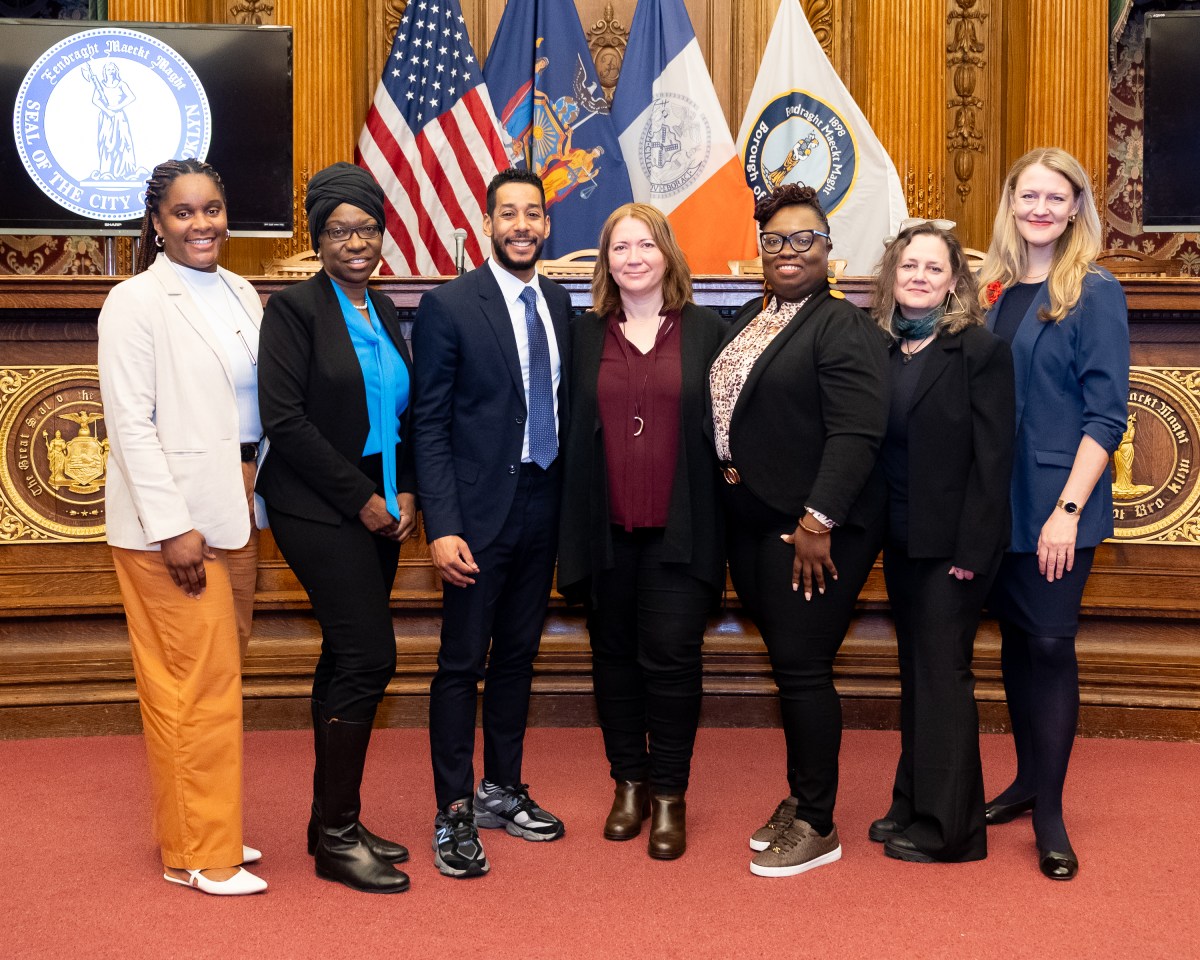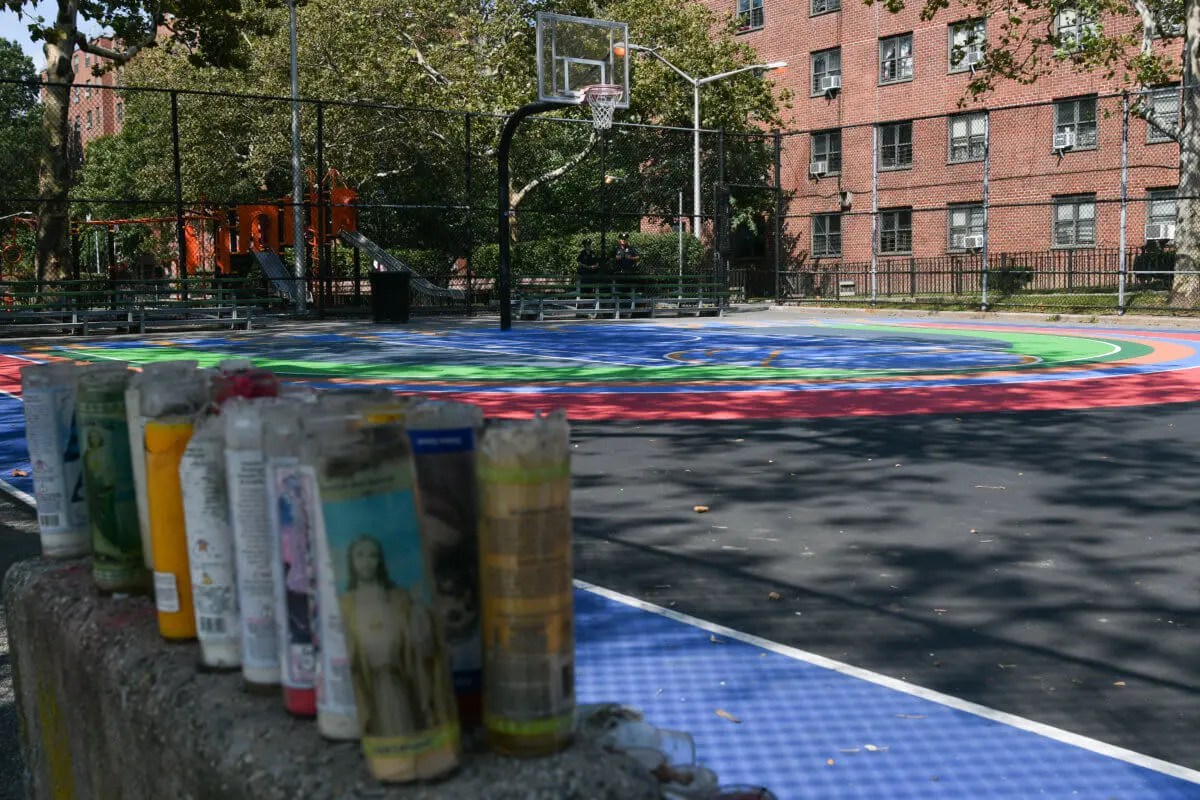
Tuesday seemed like it would be just another day for 80-year-old Dorothy Driscoll. She’d wake up at her East Side apartment, her home for 40 years, and when her doorbell would sound a few hours later, she would know it was her regular Citymeals deliverer coming to drop off lunch. He’d check in on her and make sure everything was OK, and then they’d bid adieu until his delivery the next day. But this rainy summer morning, it turned out, would be different—for Dorothy and for Citymeals—for her 9:30 a.m. delivery would be the organization’s 60 millionth since it began serving New York’s homebound elderly 38 years ago.
Citymeals on Wheels was founded in 1981 when Gael Greene, a longtime restaurant critic for New York magazine, came across a newspaper article about the many aged New Yorkers facing hunger. With Thanksgiving around the corner, she was stunned to read that these folks wouldn’t be receiving meal deliveries on holidays and weekends and immediately began thinking of ways to alleviate the problem. Over the proceeding weeks, Greene teamed up with culinary legend James Beard, and the two raised enough money to prepare and deliver 6,000 meals to the nearby homebound elderly on Christmas. Their efforts were met with success and appreciation, and so the duo pledged to continue the following year.
A crucial element of Citymeals’ development was its early relationship with the Department for the Aging. Bureau Chief Marcia Stein was dedicated to helping Greene and Beard bring their mission to fruition, and she worked tirelessly to establish one of the first public/private partnerships in the United States with the young organization. It’s in fact this very partnership that allowed Citymeals to ensure that all its public donations go entirely toward the preparation and delivery of meals, a promise that rings true to this day.
Although Citymeals has certainly stayed true to its mission over the last 38 years, its immense growth and the evolving narratives around aging and health have forced the organization to adapt accordingly. Weekend and holiday meals may have been the initial aim for Greene and her team, but they realized by 1986 that New York’s growing elderly population needed even more. Citymeals soon introduced the Emergency Food Package, a collection of nonperishable staple foods that was designed to help sustain meal recipients over the winter months and make it easier for them to stay in their homes. Within the next 10 years, the organization grew monumentally, delivering roughly one million meals each year to more than 16,000 recipients.

With this growth in mind, the Citymeals volunteer program was formally established in 1999, leading hundreds of people from all walks of life to help out.
“It’s really important that we not only meet the need but understand how the need has changed,” says Beth Shapiro, Citymeals’ executive director since 2011. “Nearly 40 years ago, people were very happy to just have meals come to their door. They’re still very happy with that, but our understanding of nutrition and isolation has developed.”
Citymeals has made a point of keeping up with the most up-to-date and medically sound information. Each meal, provided 365 days a year, fulfills one-third of an elderly person’s daily nutritional requirements and includes at least three ounces of protein, three ounces of vegetable, and three ounces of grain. The meals are prepared daily at 30 meal centers across New York, using fresh and seasonal ingredients, so their contents can vary from neighborhood to neighborhood. There are vegetarian, kosher, halal and other specialty options available, and the Citymeals team will work with recipients who have further dietary restrictions and needs to ensure that they’re met.
More than just meals
Perhaps most importantly, the organization is acutely aware of the struggles their beneficiaries face beyond hunger. Since most of the recipients, all 60 and older, live alone and are at risk of the many health ailments that come with age, Citymeals began shaping initiatives to help with isolation. In 2005, the Friendly Visiting program was launched, matching trained volunteers with lonely seniors to provide companionship and friendship. The service also began implementing check-ins as part of its daily deliveries, whereby the staff member and volunteer meal deliverers would chat with recipients and make sure everything was all right.
“Very often they are the same deliverers every day so that they form bonds with recipients,” Shapiro explains. “These bonds lead to consistency, but they also allow us to notice any changes in the recipients’ home or manner.”
And sometimes, it’s this very check-in that makes all the difference. “My Citymeals deliverer actually saved my life,” says Dorothy Driscoll. Last September, the legally blind octogenarian fell inside her apartment and was on the floor unconscious. Her deliverer knocked on the door, as always, but was not met with Dorothy’s usual smile. “When I didn’t answer, he alerted authorities and helped get me to the hospital,” she says. And it’s her daily Citymeals deliveries that she credits with her recovery. “After time in the hospital, I was able to return to my own home knowing there would be a meal delivery and a check-in each day.”
As the organization celebrates its 60 millionth meal delivery, it is thankful for the 25,000 volunteers who have donated their time in the last year and for the millions of dollars raised to further the cause. Citymeals continues to take pride in its humble beginnings and history, but Shapiro and her team are looking to the future.
“It’s a huge milestone,” she says, “but we’re now thinking what do the next 60 million meals look like?” With the senior citizen population in the U.S. expected to grow more than 40% by 2040, the director wonders how they will adapt to the changing dynamics of need.
As the world continues to shift and the needs of New York’s elderly evolve, though, Citymeals will undoubtedly remain loyal to its focus on people, just as it has for nearly four decades. “The best part of my job is being able to see these people and hear their stories,” Shapiro says. “The people that Citymeals serves are truly the people who built this city.”





























